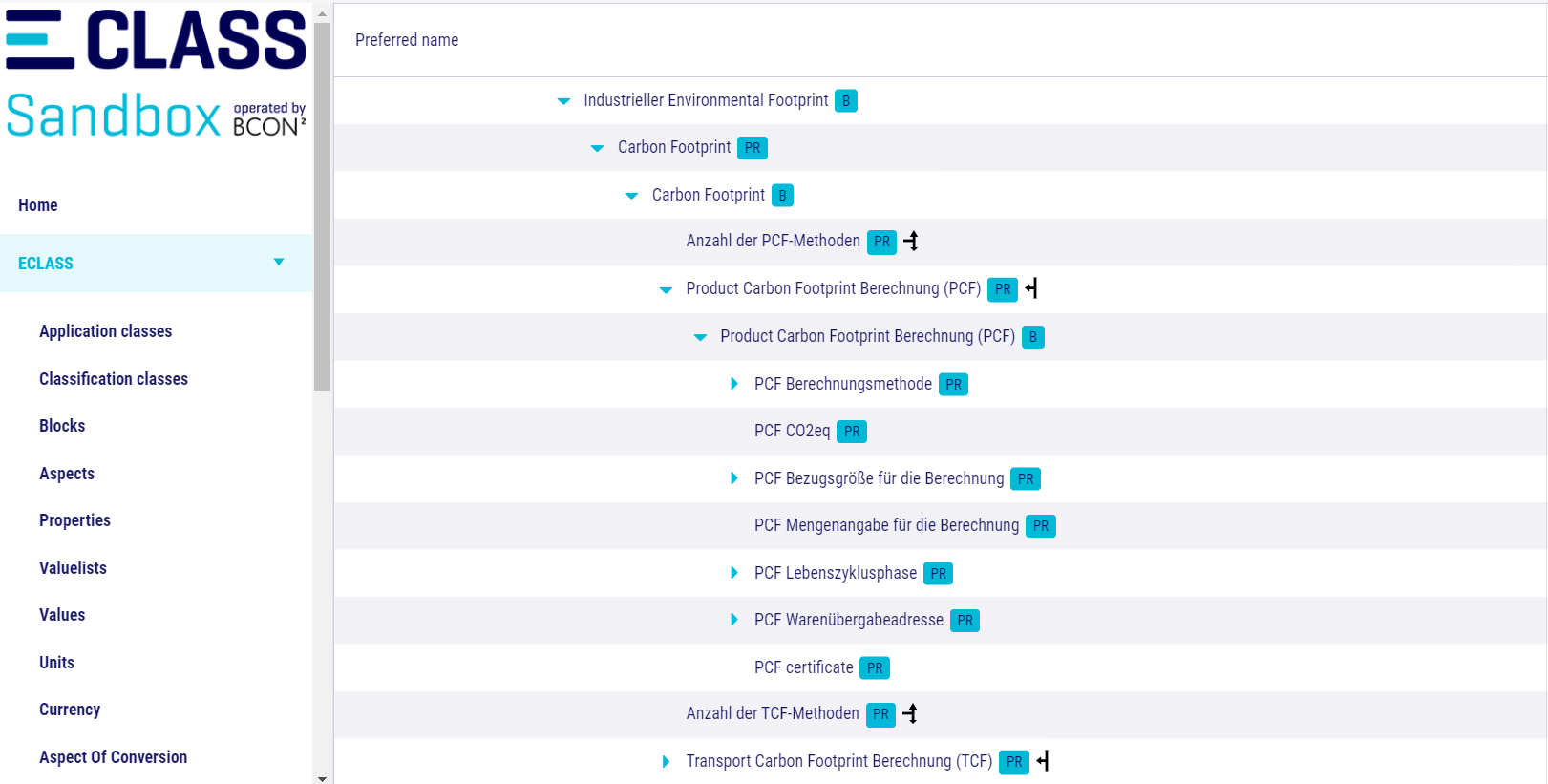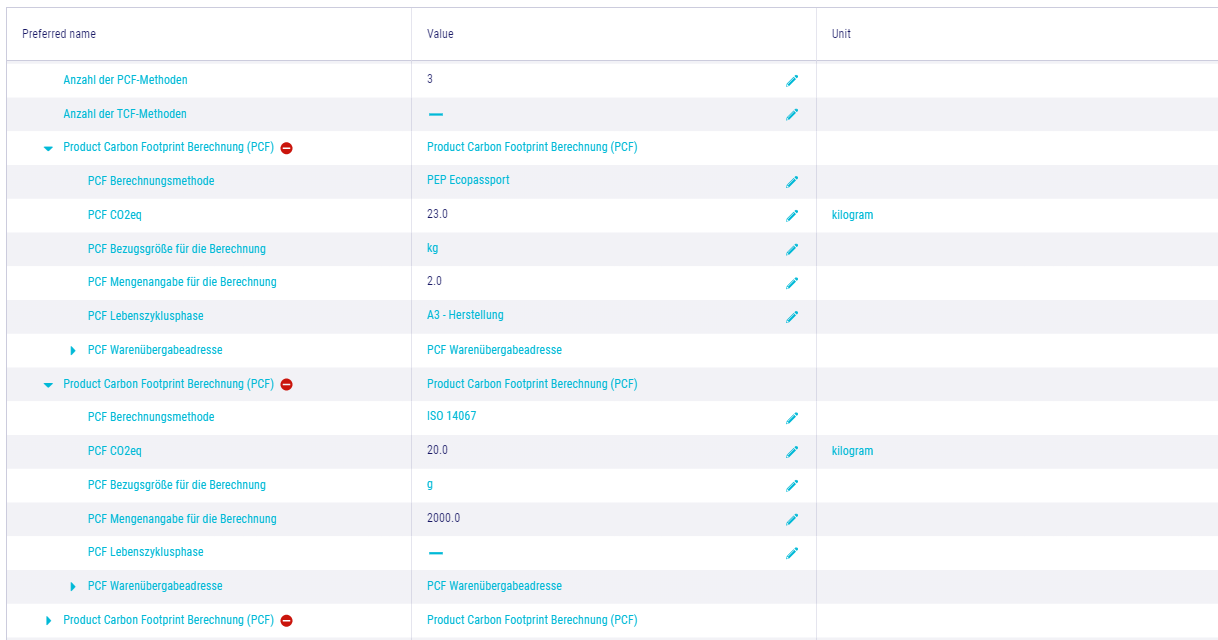ECLASS properties with environmental parameters
A working group made up of the Head Office and company representatives at ECLASS e. V. has defined five indicators: Consumption of water, energy and resources, land use, and the product carbon footprint (PCF), i.e., the CO2 footprint left by a product in life phases such as production, transport or use. "These are the first five pieces of information that could become important for a product," Blum explains. "PCF in particular is relevant when it comes to sustainability because there is some understanding in the marketplace about how to calculate it and what it says."
At the same time, the five areas are a low-threshold introduction to the topic of product-related sustainability for the more than 4,000 ECLASS users from sectors such as electrical engineering, chemistry and mechanical engineering: Companies often collect the necessary data anyway due to legal requirements or can at least rely on recognized calculation methods, such as for the PCF.
Secured and comparable data
Once they have collected the values and described them according to ECLASS, the data exchange can start - and there is the possibility for comparison. For example, for the buyer who is looking for a particularly "sustainable" backup. Or for the production manager who wants to check where resources might be wasted. Or for the computer, which can relieve people of such decisions: "If we move more and more in the direction of machine communication and also transfer certain decisions to the machine, for example in product procurement in terms of sustainability: Then I need the exchange of secure and comparable data," Blum emphasizes. However, ECLASS itself has no way of checking whether the data entered is correct. "We can only work with so-called qualifiers," Blum explains. These are statements that allow conclusions to be drawn about the quality of the data, for example: Was a value measured exactly, was it estimated, or was an average given?
Environmental data for an example product
Blum, however, sees a clear commitment from the industry to data quality: " There's a wish for sustainability data to be collected in the future in such a way that it is completely traceable and comparable - just as it is with other product characteristics, after all." Quality is also being driven by new laws and directives: EU legislative projects are requiring companies to transparently collect sustainability indicators at company level in the future and to communicate them regularly. And there is also likely to be legislative pressure on products. Blum explains that one motive for the sustainability parameters in ECLASS is the EU's plans for a digital product passport. In 2025, this is to be introduced on a mandatory basis in a pilot phase for batteries and textiles, among other things, and will also map environmental aspects. "That's why we are already further developing the ECLASS Standard to meet these requirements."
Annual optimization
The possibilities offered by version 13.0 are therefore only the beginning: In the Release planned for 2023, water consumption is to be specified more precisely and the carbon footprint is to be documented even better according to phases of the product life cycle. Establishing a uniform data standard is challenging anyways, says Blum. But when it comes to sustainability, that's even more true, he adds. "It's difficult to get all companies on the same page. Some make pencils, which are used up over their life cycle. Others build electrical enclosures. The challenge is to then find, for example, product lifecycles and associated environmental parameters that work equally well for everyone."
Blum invites the members of ECLASS e. V. and all users to participate in the working group on environmental data. If there is a uniform understanding of length, width or tension, he says, and one can map that accordingly in product data - why not for a growing number of sustainability parameters? "Only those who get the most complete information possible can make a rational decision." For example, one that takes environmental aspects into account.

